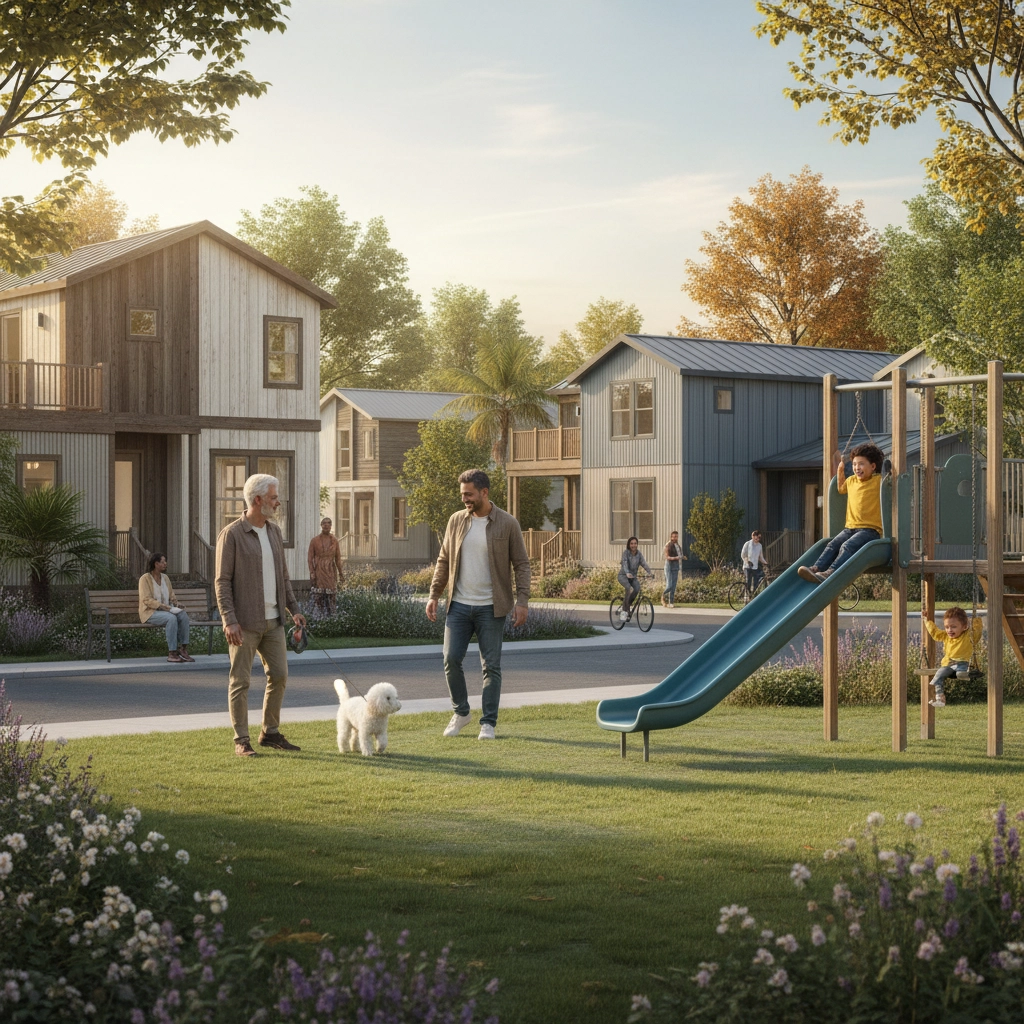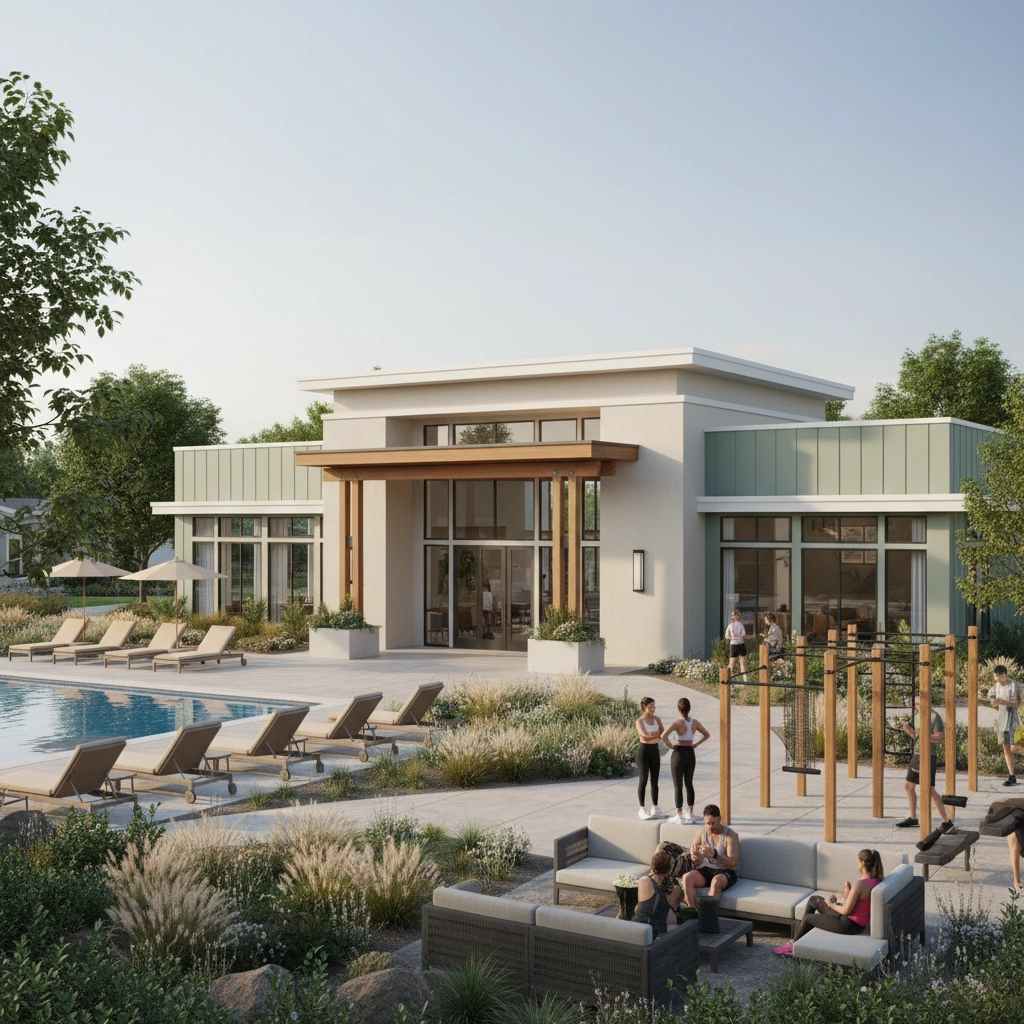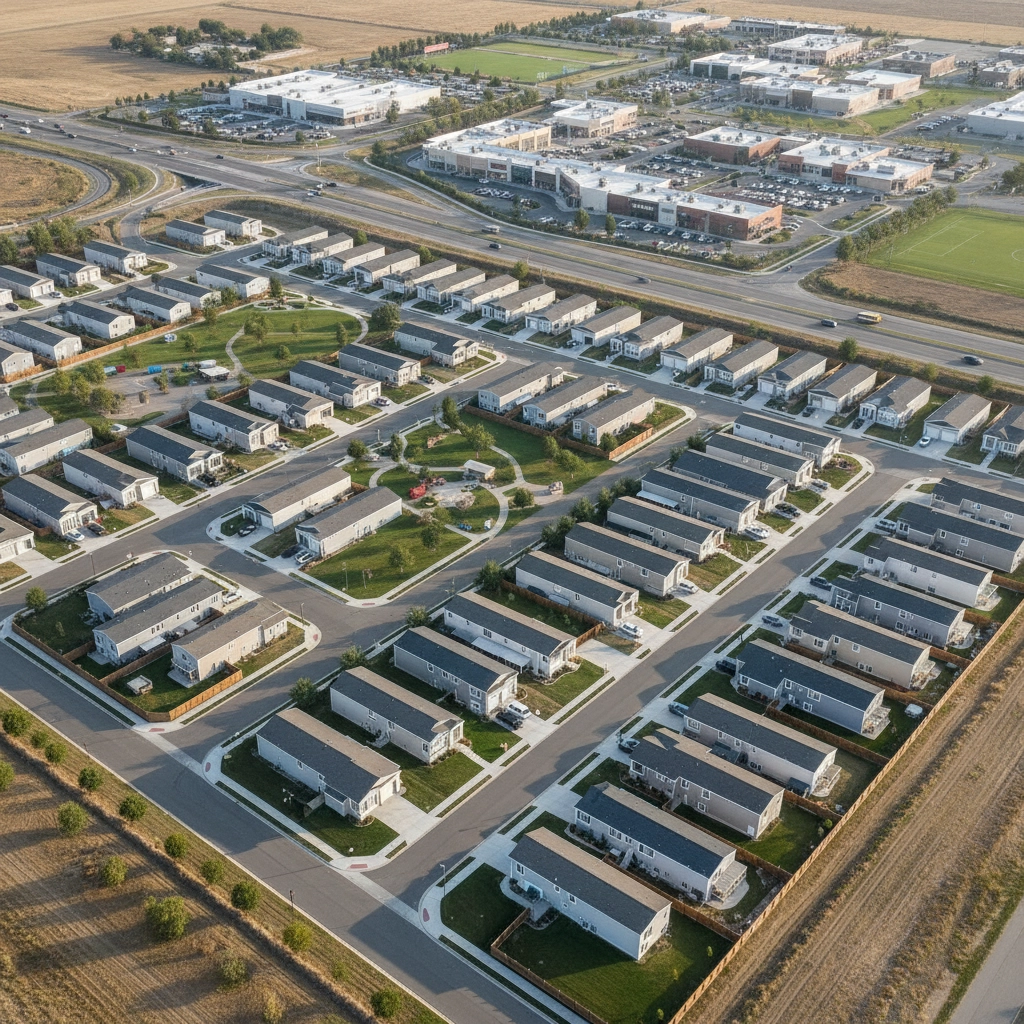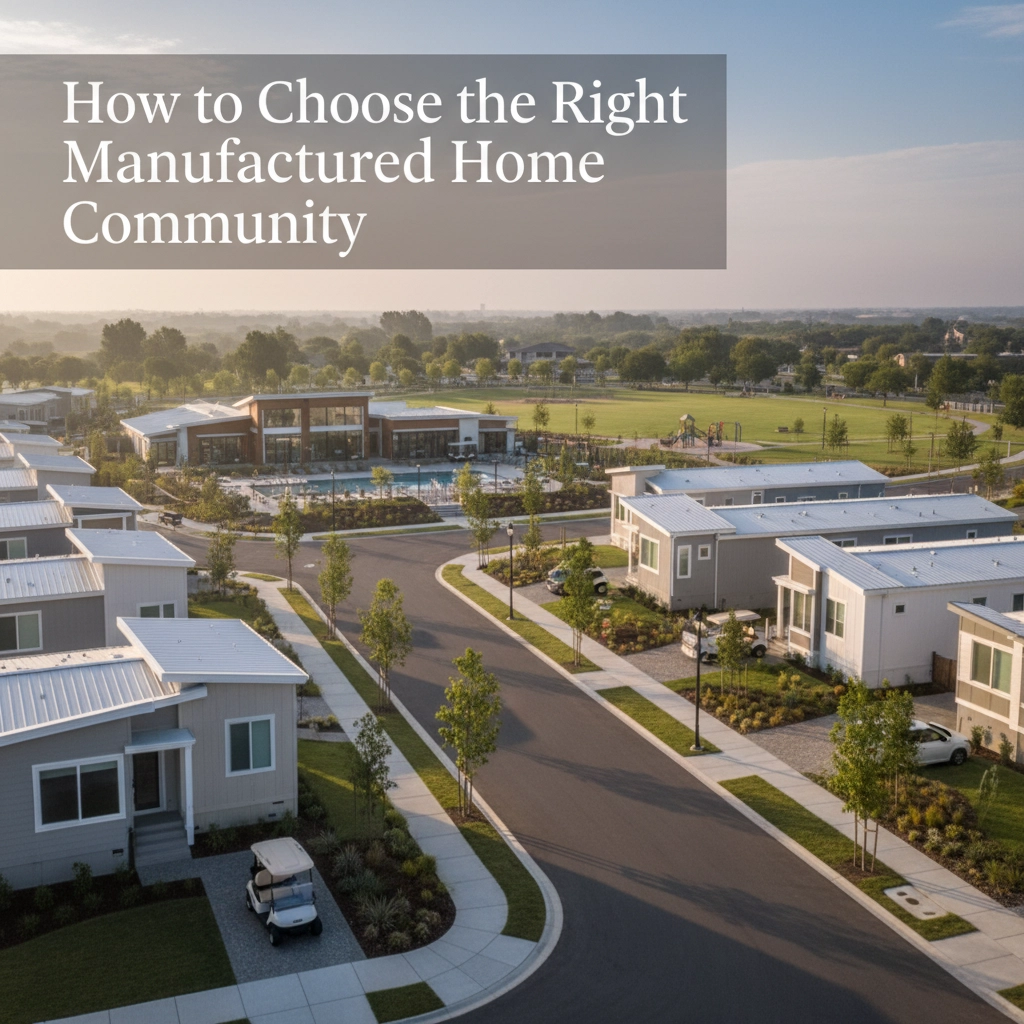Choosing where you live shapes everything from your daily routines to your long-term financial health. When it comes to manufactured home communities, you’re not just picking a house: you’re choosing a neighborhood with its own culture, rules, and financial obligations that will affect your lifestyle for years to come.
A manufactured home community is more than just a place to park your home. It’s a neighborhood where residents own or rent their manufactured homes while leasing the lot or paying community fees. These communities vary dramatically: some are quiet, retirement-focused parks, while others buzz with family activities and community events.
With approximately 22 million Americans living in manufactured housing communities across the country, finding the right fit directly impacts your costs, resale prospects, and day-to-day happiness. Let’s walk through how to make this important decision with confidence.
Understanding Your Lifestyle Needs
What Daily Life Looks Like
Life in manufactured home communities can range from peaceful retirement havens to bustling family neighborhoods. Before you start visiting communities, think about what matters most to you:
- Daily rhythms: Do you prefer quiet mornings or don’t mind early commuter traffic?
- Demographics: Would you thrive in a 55+ community or prefer the energy of mixed-age residents?
- Activity level: Are you looking for organized events and social calendars, or do you value privacy and quiet living?
For example, if you’re retiring, you might love a 55+ community with scheduled activities and on-site services. But if you’re a young family, you’ll probably prioritize parks with playgrounds and proximity to good schools.
Building Community Connections
One of the biggest draws of manufactured home living is the strong sense of community. Many residents find genuine friendships and support networks that enhance their quality of life. Look for communities that offer:
- Regular organized events like potlucks, holiday celebrations, and hobby clubs
- Resident-led groups such as garden clubs or walking groups
- Friendly social norms around neighbor interactions and community involvement
Pro tip: If possible, visit during a community event to see how residents interact and ask people about their experiences living there.

Navigating Rules and Financial Obligations
Understanding Community Rules
Every manufactured home community has rules that can significantly impact your daily life. Common regulations include:
- Pet policies: breed restrictions, leash requirements, and pet fees
- Exterior modifications: rules about sheds, paint colors, decks, and landscaping
- Parking: guest parking policies, vehicle size restrictions, and RV storage
- Noise ordinances: quiet hours and community standards
- Maintenance: trash collection, recycling, and yard care responsibilities
Get a copy of the community rules before you make any commitments. These aren’t just suggestions: they’re enforceable policies that affect how you can use your property.
Financial Considerations That Matter
Beyond the cost of your home, several ongoing expenses will impact your budget:
- Monthly lot rent: Ask about the history of rent increases and any caps on future increases
- Utilities: Clarify what’s included versus what you’ll pay separately (water, sewer, trash, electricity)
- Special assessments: Fees for capital improvements or emergency repairs
- Insurance requirements: Both homeowners insurance and any required community coverage
Money-saving tip: Communities with stable governance and well-maintained infrastructure typically hold their value better and have fewer unexpected assessments.
Lease Terms and Governance
Carefully review the lease agreement and management structure. Key questions include:
- How long is the lease term and what are the renewal conditions?
- How are community rules amended and who enforces them?
- Is there an on-site manager or is it corporate-managed?
- What’s the process for resolving disputes between residents or with management?
If the lease seems complex, consider having a real estate attorney review the key terms.
Evaluating Amenities and Infrastructure
Community Features That Add Value
The amenities offered can significantly enhance your lifestyle and property value. Look for:
- Recreation facilities: clubhouse, swimming pool, playgrounds, or sports courts
- Convenience services: on-site laundry, maintenance staff, or package receiving
- Safety features: gated entry, adequate lighting, and security measures
- Management presence: on-site office and responsive maintenance team
Ask about any additional fees for using certain facilities and whether amenities are well-maintained.
Infrastructure and Safety Essentials
The quality of basic infrastructure affects both your daily convenience and long-term costs:
- Road conditions: Are streets well-maintained and accessible during bad weather?
- Utility reliability: How often do power outages occur and how quickly are they resolved?
- Drainage and flood risk: Check FEMA flood maps to understand potential risks
- Maintenance standards: Are common areas and individual lots kept in good condition?
Communities with reserve funds for maintenance and proactive management teams usually signal financial stability and good long-term prospects.

Location and Neighborhood Factors
Proximity to Essential Services
Consider how the location will affect your daily life:
- Healthcare access: Distance to primary care doctors, urgent care, and hospitals
- Shopping convenience: Proximity to grocery stores, pharmacies, and essential services
- Transportation options: Public transit availability and major highway access
- Schools: If you have children, research local school district quality
Environmental and Regional Considerations
Manufactured homes are built to HUD standards, but regional risks matter:
- Weather exposure: Wind ratings, flood zones, and storm preparedness
- Climate factors: Winterization needs in cold climates or cooling costs in hot regions
- Natural disaster risks: Earthquake, wildfire, or hurricane exposure
Understanding these risks helps you prepare appropriately and may affect insurance costs.
Finding and Comparing Your Options
Where to Search
Start your search using multiple resources:
- Online platforms: MHVillage, Zillow (filtered for manufactured homes), and community websites
- Local connections: Real estate agents specializing in manufactured homes and local housing associations
- Direct exploration: Drive through neighborhoods and look for community signs
Creating a Comparison System
Use a simple scoring system to objectively compare communities. Here’s a sample checklist you can adapt:
Community Comparison Checklist (Rate 1-5):
- Lifestyle fit (matches your pace and preferences)
- Community rules (reasonable and enforceable)
- Financial transparency (clear about costs and increases)
- Amenities quality and maintenance
- Management responsiveness
- Location convenience (healthcare, shopping, commute)
- Safety and security measures
- Resale potential and community stability
Total Score: ___/40
This quantitative approach helps reduce emotional bias and highlights important trade-offs between communities.
Talking to the Right People
Questions for Community Managers:
- What’s the typical lease length and rent increase history?
- How are rules enforced and disputes resolved?
- What unexpected fees or assessments should I anticipate?
- What maintenance is handled by management versus residents?
Questions for Current Residents:
- How long have you lived here and what attracted you to this community?
- How responsive is management to maintenance and safety concerns?
- What’s the social atmosphere like and are neighbors generally friendly?
- Have you experienced any unwelcome surprises with costs or rule changes?
Key resident question: “What’s one thing you wish you’d known before moving in?”

Making Your Final Decision
Weighing Your Priorities
At this stage, you’ll need to balance competing factors. A community with extensive amenities and social activities might cost more in lot rent and fees, while a quieter, simpler community might offer lower costs but fewer services.
Make a list of your non-negotiables (such as proximity to healthcare) versus your nice-to-haves (like a community pool). Use this list to guide your final decision when communities score similarly on your comparison checklist.
Negotiation and Contract Tips
Before signing any agreements:
- Get promises in writing: Any verbal commitments from management should be documented
- Ask about incentives: Move-in specials, prorated rent, or repairs completed before occupancy
- Confirm logistics: Move-in procedures, utility activation, and any required insurance
- Review everything twice: Lease terms, community rules, and fee structures
Preparing for Community Life
Once you’ve chosen your new community, set yourself up for success:
- Attend welcome events and introduce yourself to neighbors
- Respect established community norms and quiet hours
- Get involved in committees or volunteer activities if that interests you
- Stay informed through community boards or resident groups
Remember, a friendly attitude and consistent respect for community guidelines builds goodwill quickly and helps you integrate smoothly into your new neighborhood.
Your Next Steps to Success
Choosing the right manufactured home community requires balancing multiple factors, but following a systematic approach leads to confident decisions. Here’s your action plan:
- Clarify your priorities: Create your personal list of must-haves versus nice-to-haves
- Research your target area: Focus on locations that work for your commute and service needs
- Use online tools effectively: Start with platforms like MHVillage and work with local specialists
- Visit strategically: Tour communities during different times and attend events when possible
- Compare objectively: Use the scoring checklist to evaluate each option fairly
- Verify key information: Talk to multiple residents and confirm important details with management
Final Decision Checklist:
- ✓ Lease terms reviewed and understood completely
- ✓ Lot rent history and increase policies documented
- ✓ Community rules received and reviewed
- ✓ All fees and utilities clearly explained
- ✓ At least two current residents contacted as references
- ✓ Insurance requirements understood and planned for
- ✓ Move-in date and lot condition confirmed in writing
If you’re ready to explore manufactured home community living in the Houston area, Piney Woods Manufactured Home Community offers the perfect blend of community amenities, reasonable costs, and convenient location. We’d love to show you what makes our community special and help you determine if it’s the right fit for your lifestyle and budget.
The right manufactured home community is out there waiting for you. With careful research and the right approach, you’ll find a place where you can build lasting friendships, enjoy affordable living, and create the lifestyle you want. Start with your priorities list, download our comparison tools, and schedule your first community visit this week( your new home awaits.)

